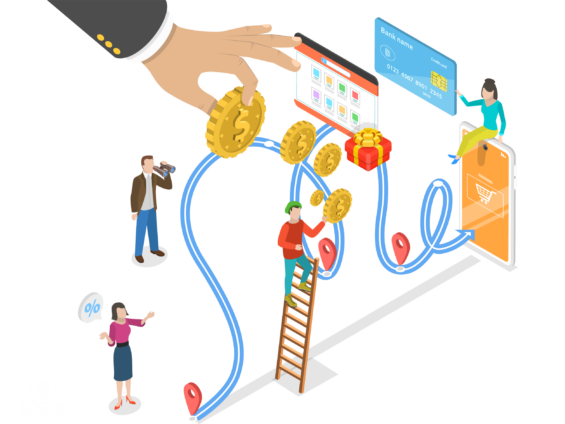Customer Journey: What Is It?

In a market where competition is fierce and consumer expectations are constantly rising, understanding and optimizing the customer journey has become a top priority for companies. But what exactly does this term mean, and why is it so crucial?
A path to satisfaction
The customer journey encompasses all the stages and interactions a customer goes through before, during, and after purchasing a product or service. The aim is to create a smooth, satisfying purchasing experience. This holistic process includes all customer experiences with a brand, from initial awareness to post-purchase loyalty.
Imagine a customer searching for the perfect pair of shoes. Their journey begins when they realize that their old shoes are worn out. They then start a phase of exploration, browsing digital and physical shelves in search of the perfect pair. They compare styles, read reviews and prices, and let their inspiration guide them.
Finally, the Grail is found: the ideal shoe is in their basket. But the adventure doesn’t end there! Then comes the moment of truth: the purchase. Secure payment and express delivery – everything is orchestrated for a smooth, seamless experience.
And that’s not all. Customers try on their new shoes and appreciate their comfort. If satisfied, they become brand ambassadors, recommending their findings to friends and family. Their positive opinion spreads, attracting new customers to the brand.
In short, it’s your customer’s story, from when they become aware of their need to when they become an ambassador for your brand.
Why is the customer journey important?
Mobilizing teams
Defining the customer journey helps mobilize your teams. Customer journey mapping carried out in a cocreation workshop at Maïeutyk enables every team member to participate in the solution, breaking down internal silos. Whether through social media, by telephone, on the website, or at the point of sale, the customer must feel confident and receive a uniformly high quality of service.
Understanding and personalization
By mapping the customer journey, companies can better understand customers’ needs, expectations, and pain points at every stage. This understanding allows companies to personalize interactions and create more relevant, engaging experiences.
Improving the customer experience
A well-defined customer journey helps identify the critical moments when intervention is needed to improve the customer experience. For example, if customers often abandon their shopping carts at the checkout stage, a company can focus on optimizing this stage to reduce friction.
Loyalty and promotion
A positive customer experience throughout the journey increases customers’ likelihood of returning and becoming brand ambassadors. Satisfied customers are likelier to share their positive experiences and recommend the brand to others, generating new customers without additional marketing costs.
Optimization of resources
Analyzing the customer journey can help companies identify inefficiencies and optimize resource allocation. They can invest more in the channels or stages of the journey that generate the most value and reduce spending on those with less impact.
In today’s competitive environment, where consumer expectations are constantly rising, a detailed understanding of the customer journey is essential for companies wishing to stand out. Mastering the customer journey means confidently navigating the world of customer experience, deciphering their motivations, anticipating their needs, and offering them a seamless purchase, from awareness to recommendation.
Category
Share

